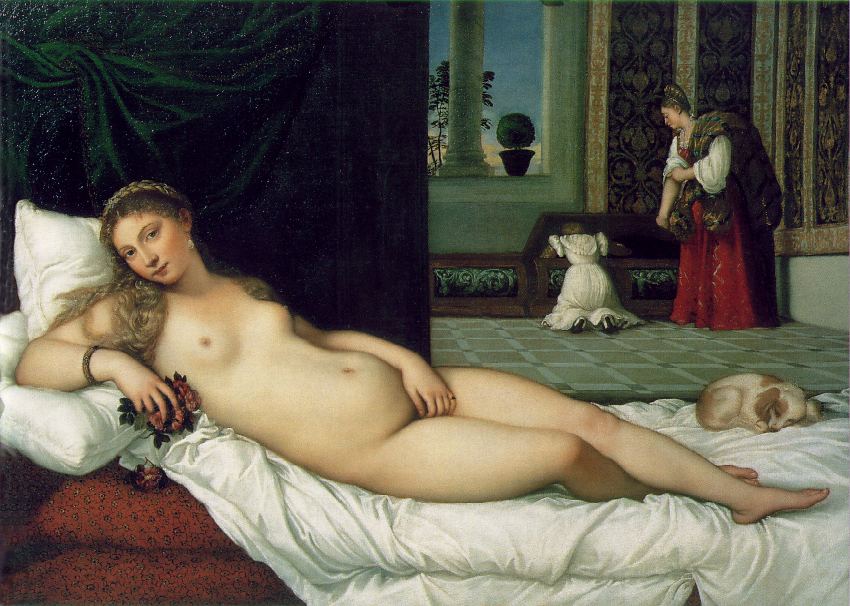(These are notes of a course given at Birkbeck College by Carol Jacobi in 2005/2006)
19thC Academies and Education
ART AND SOCIETY IN THE 19TH CENTURY ACADEMIES AND EDUCATION – SLIDE LIST
Slide 1: Rigaud, Louis XIV, 1701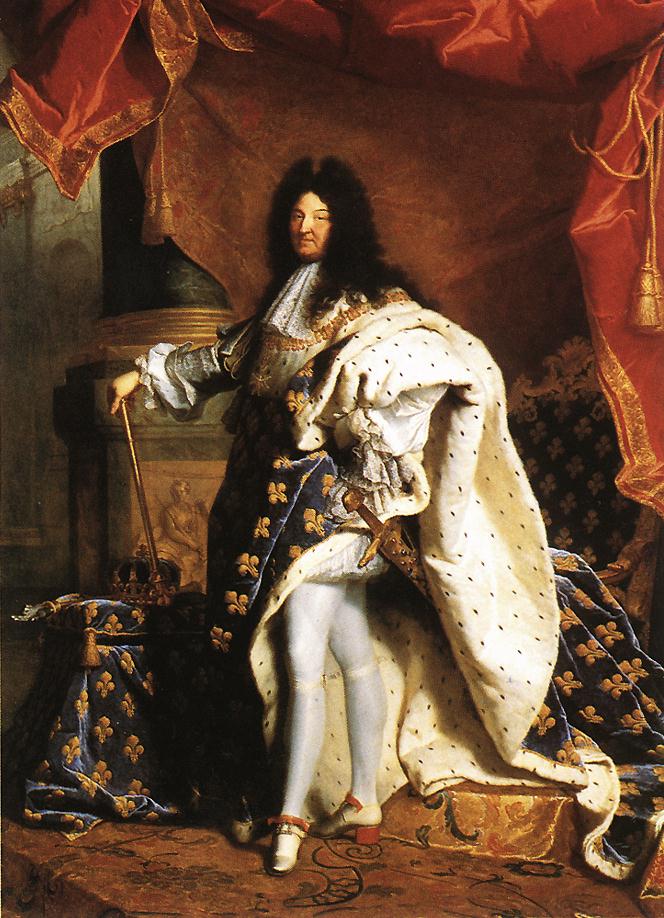
Slide 2: Le Brun, Grief, c.1660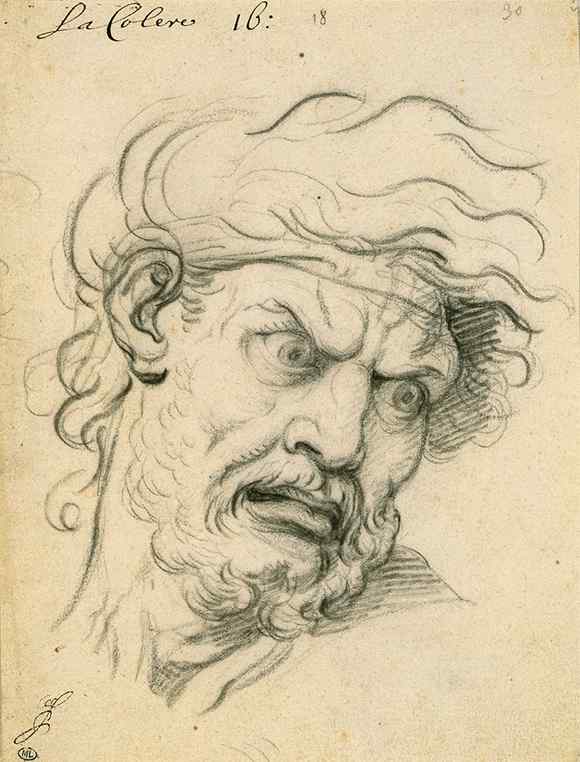
Could not find Grief or Admiration so here is Anger. The point is this man’s head was drawn to illustrate the lecture on the expression of passions which Le Brun read to the Royal Academy of Painting and Sculpture during the year 1668.
Slide 3: Le Brun, Admiration, c.1660(image not found)
Slide 4: David, Oath of the Horatii, 1785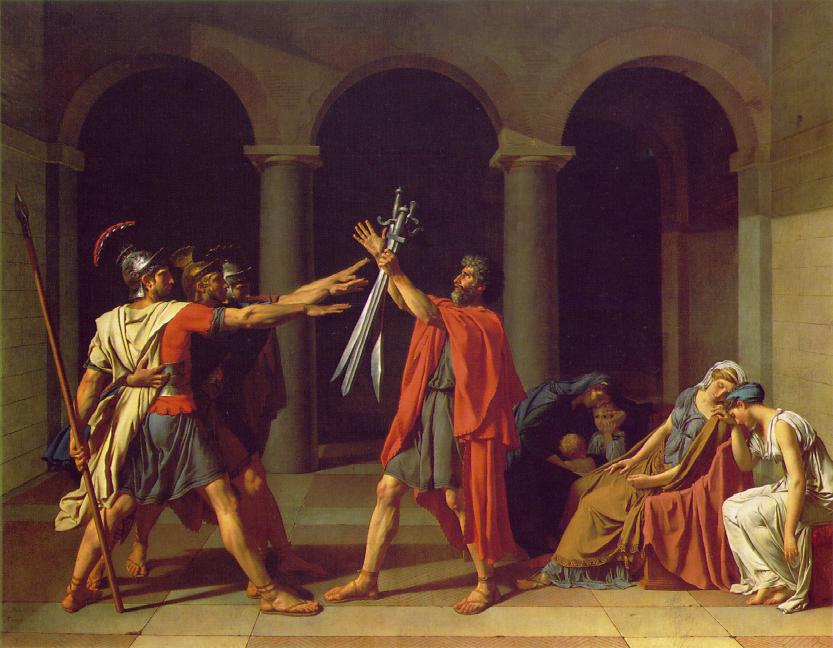
Slide 5: Reynolds, Mrs Siddons as the Tragic Muse, 1784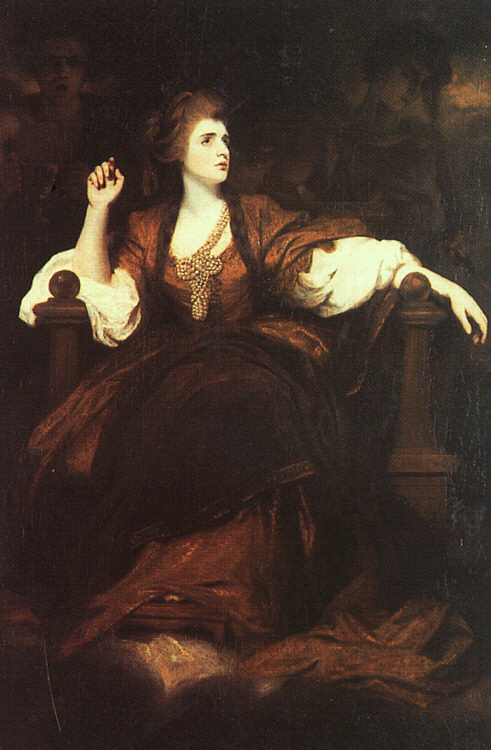
Slide 6: Turner, Dido Building Carthage, 1815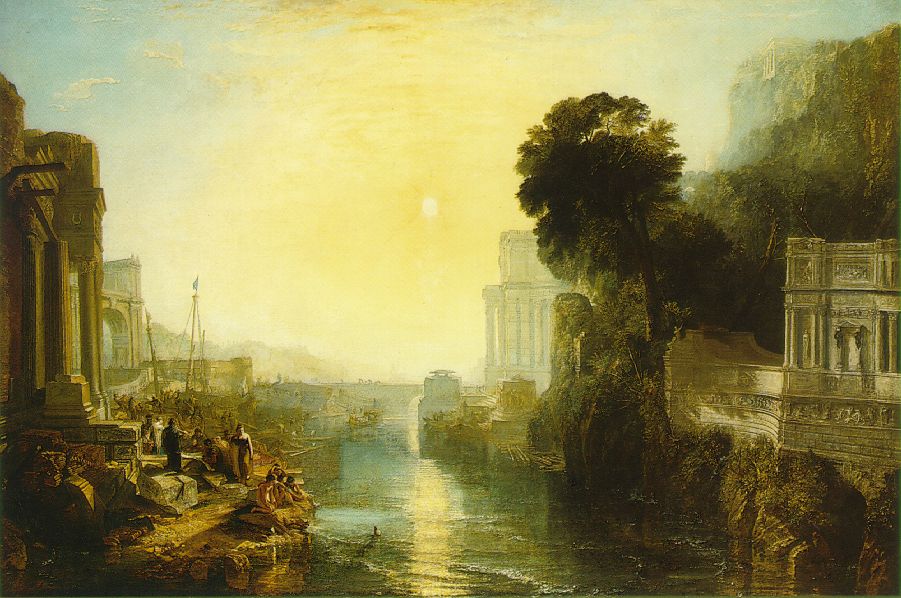
Slide 7: Saint-Aubin, Exhibition at the Louvre, 1753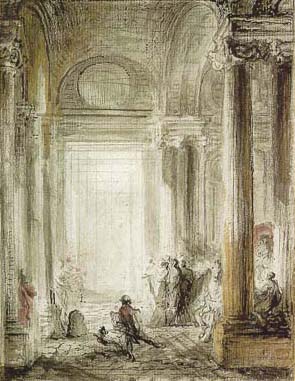
Slide 8: Manet, Le dejeuner sur l’herbe, 1863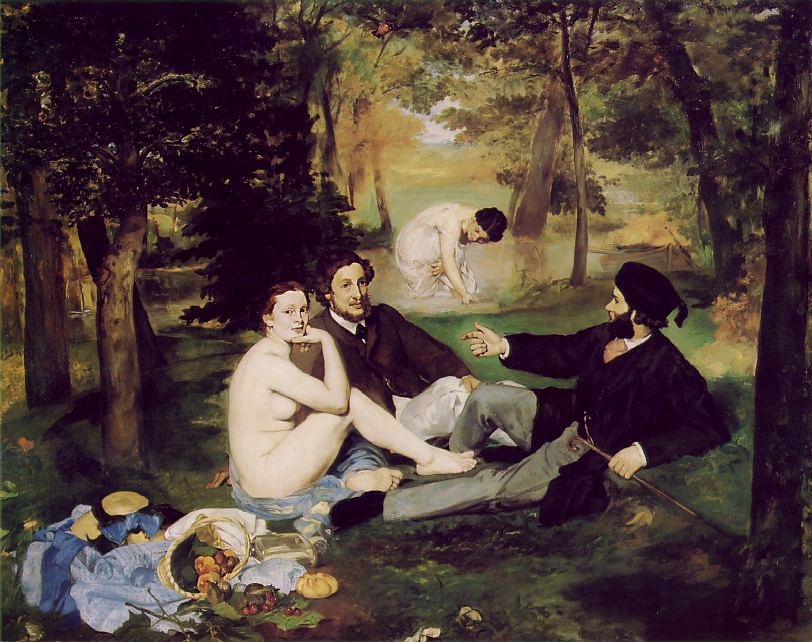
Slide 9: Monet, Boulevard des Capucines, 1874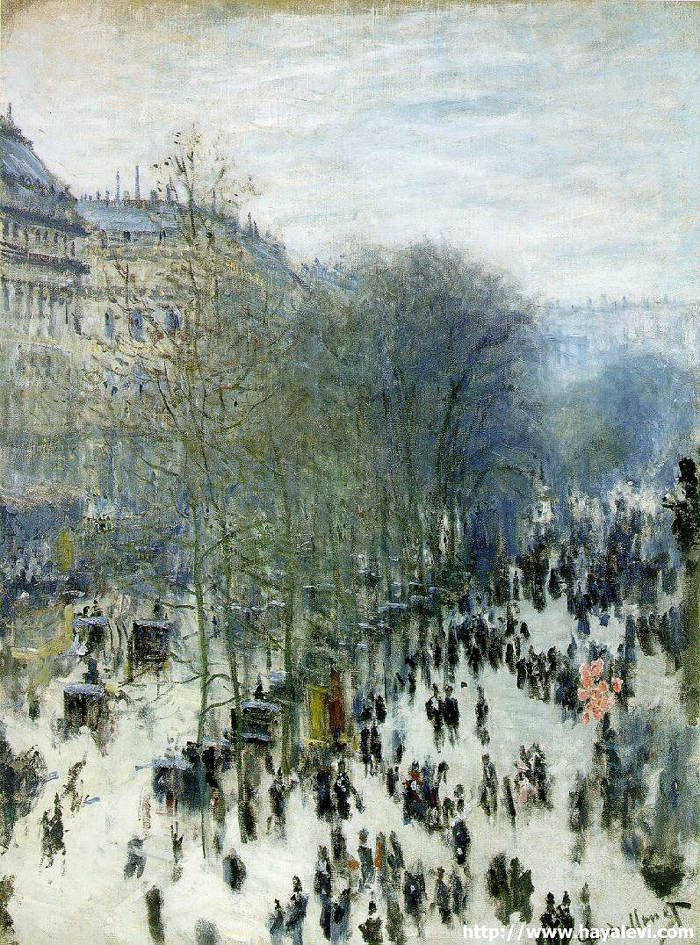
Slide 10: Seurat, La Grande Jatte, 1886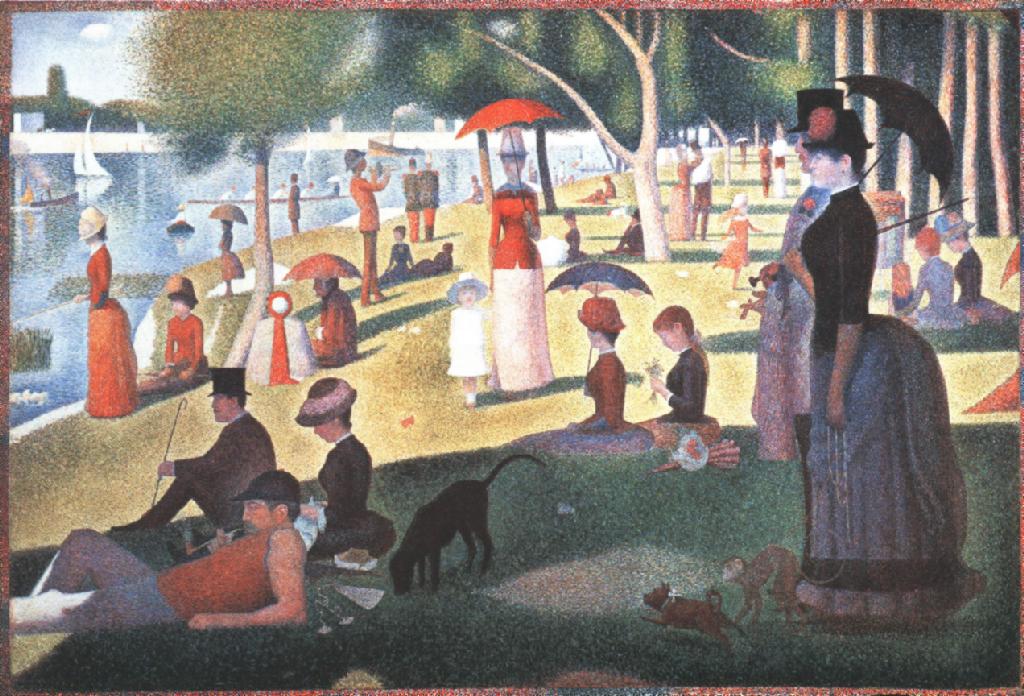
Slide 11: Wright of Derby, The Corinthian Maid, c. 1783-4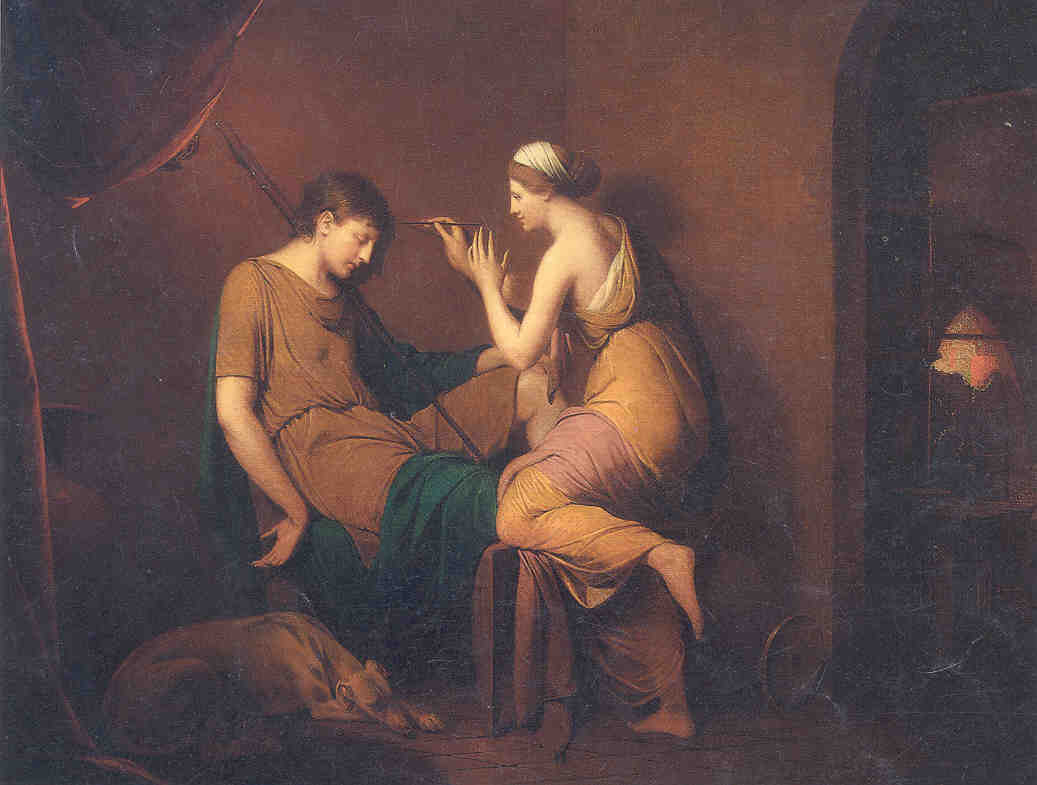
Slide 12: Seurat, Copy of Ingres’s ‘Angelica’, c. 1878
Slide 13: Van Gogh, The Shepherdess after Millet, 1889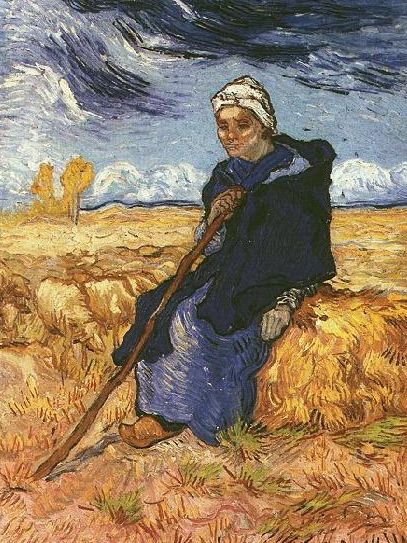
Slide 14: Seurat, Antinous, c. 1875-6(image not found)
Slide 15: Seurat, Male Nude, c.1878-9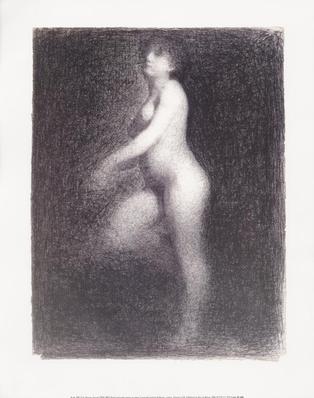
I could not find a male nude so this will have to do
Slide 16: Seurat, Male Nude Hands Crossed, 1875-6(image not found)
Slide 17: Gericault, Sketch for the Raft of the Medusa, c. 1818-19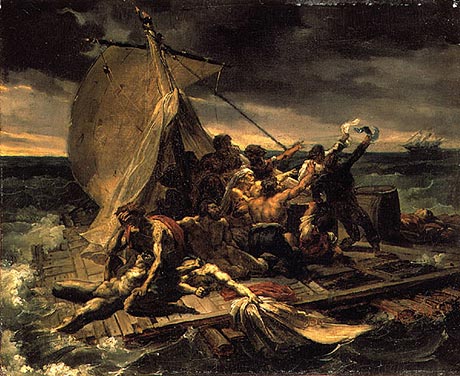
Slide 18: Gericault, Raft of the Medusa, 1819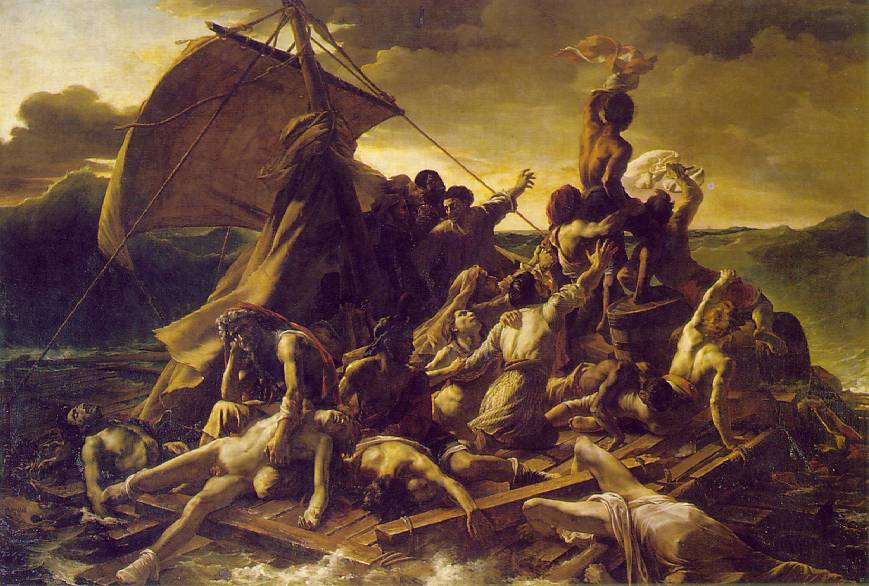
Slide 19: Gericault, Despair and Cannibalism (Raft of the Medusa), 1819(image not found)
Slide 20: ‘Art Students in the Louvre’, Graphic, 1872(image not found)
Slide 21: Batoni, 5th Duke of Devonshire, c. 1770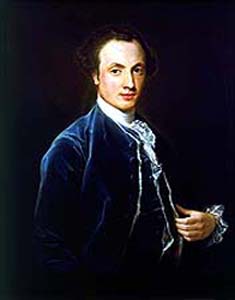
I could not find the 5th Duke, so here is James Thornhill Sir James Thornhill, b. 1675 or 1676, d. May 4, 1734, was an English painter in the baroque tradition. Although his early training remains obscure, he clearly had a knowledge of architecture and may have mastered the painting techniques of the Italian and French artists then working in England. He excelled in large-scale decoration of palace interiors in the grand manner–that is, grandiose compositions of figures in animated or rhetorical postures. His first major commission was the ceiling decoration (1707-14) of the Painted Hall at Greenwich, and it was followed by commissions at Hampton Court (1714-15) and Blenheim (1716). He was also responsible for the decorative work on the cupola, lantern and whispering gallery of St. Paul’s Cathedral. His best known work in Dorset is the reredos at St. Mary’s Church, Weymouth, depicting the last supper. By 1725 Sir James had made enough money to buy back his families ancestral estate just to the south of Stalbridge and here built Thornhill House which he probably designed himself in the Palladian manner. In the grounds is a tall obelisk that Thornhill erected in 1727 to honor the accession of George II – from whom he no doubt expected royal patronage. Sir James Thornhill also ran a private art academy where one of his was William Hogarth, who went on to be a far more famous painter than his master, and in 1727 married Sir James’ daughter.
Slide 22: Zoffany, Tribuna of the Uffizi, 1772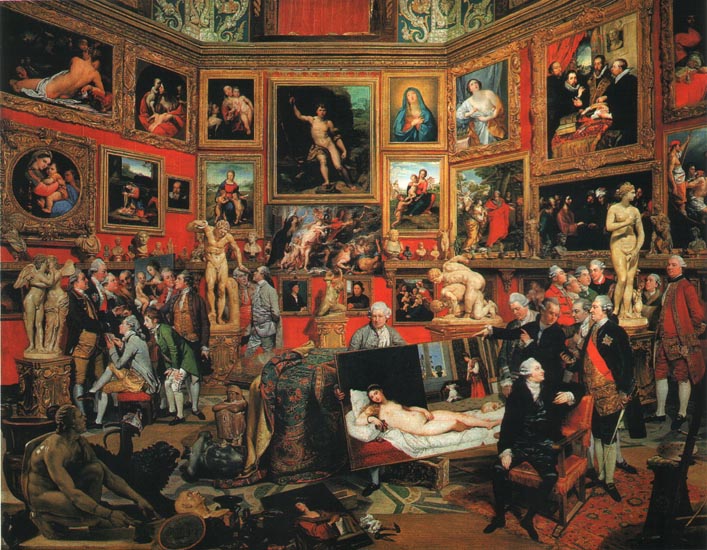
Slide 23: Claude, Classical Landscape with Figures, 1652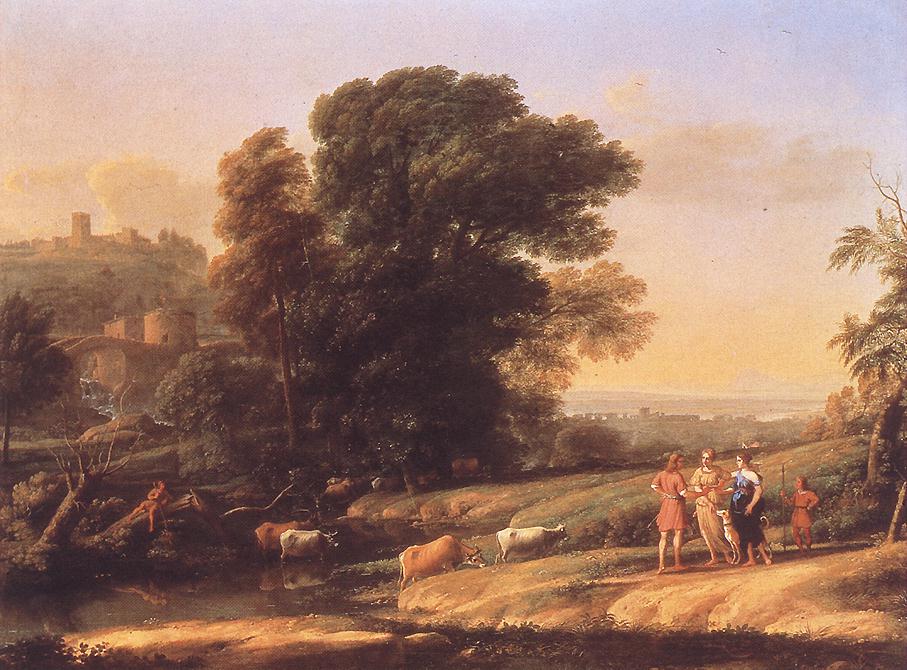
Slide 24: Burney, Antique Room in Old Somerset House, 1779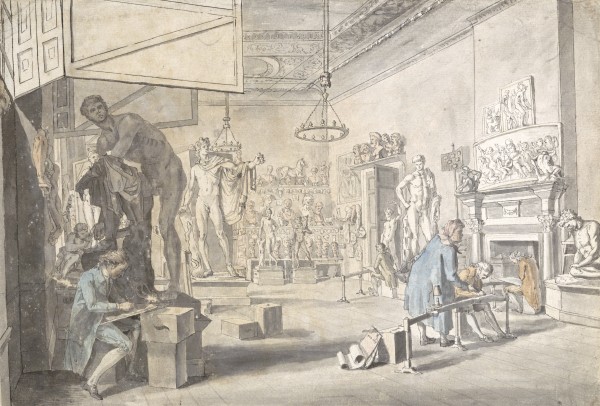
Slide 25: Zoffany, The Antique Academy, c. 1770(image not found)
Slide 26: Zoffany, Academicians of the Royal Academy, 1772(image not found)
Slide 27: Kauffmann, Self-Portrait Hesitating Between Painting and Music, 1791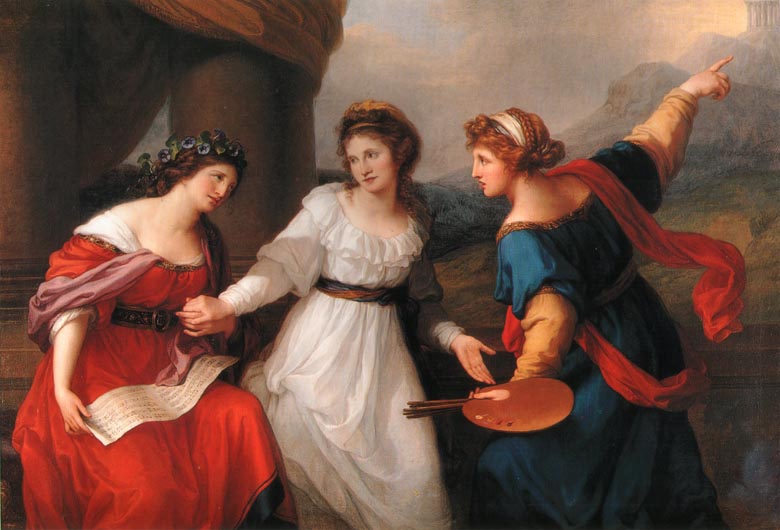
Slide 28: Burney, Exhibition of the Royal Academy, 1784(image not found)
Slide 29: Burney, Exhibition of the Royal Academy, 1784(image not found)
Slide 30: Burney, Exhibition of the Royal Academy, 1784(image not found)
Slide 31: Dyce, Virgin and Child, 1838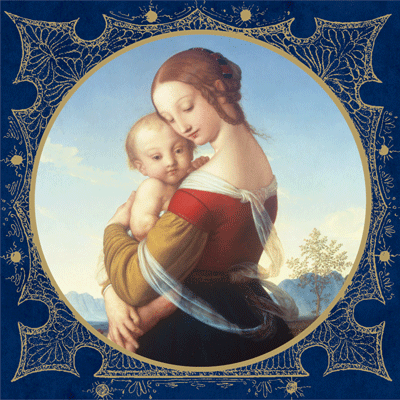
Slide 32: Dyce, Joash Shooting the Arrow of Deliverance, 1844(image not found)
Slide 33: Jones, Grammar of Ornament, 1856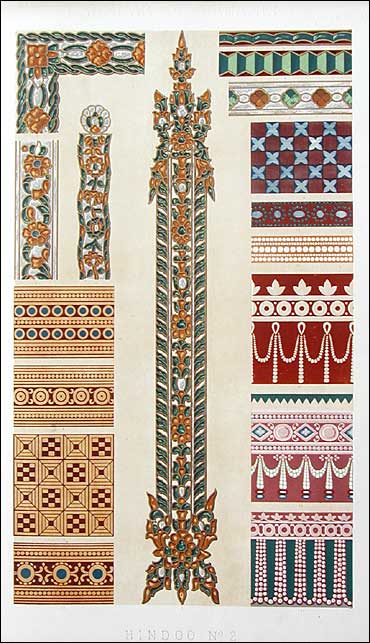
Slide 34: Jones, Grammar of Ornament, 1856
Terms Used:
1795 Institut de France 1863 Salon des Refusés French Academy = 'l'ves (pupil), agr'es (counsel), acad'micien Prix de Rome Ecole des Arts et M'tiers (trades/crafts) Paris Ecole Gratuite de Dessin (the Petite Ecole) (the Paris Free Drawing School) Mechanics’ Institutes (cf. Birkbeck) 1835 Select Committee on Arts and Manufacture Schools of Design – Normal School of Design 1849 Select Committee on the Schools of Design Department of Practical Art – Science and Art Department at South Kensington
The following are the slides used in 2003
Slide 35: Francois Salle, ‘The Anatomy Class at the Ecole des Beaux-Arts’ 1888(image not found)
Slide 36: Jacques-Louis David, ‘The Death of Socrates’ 1787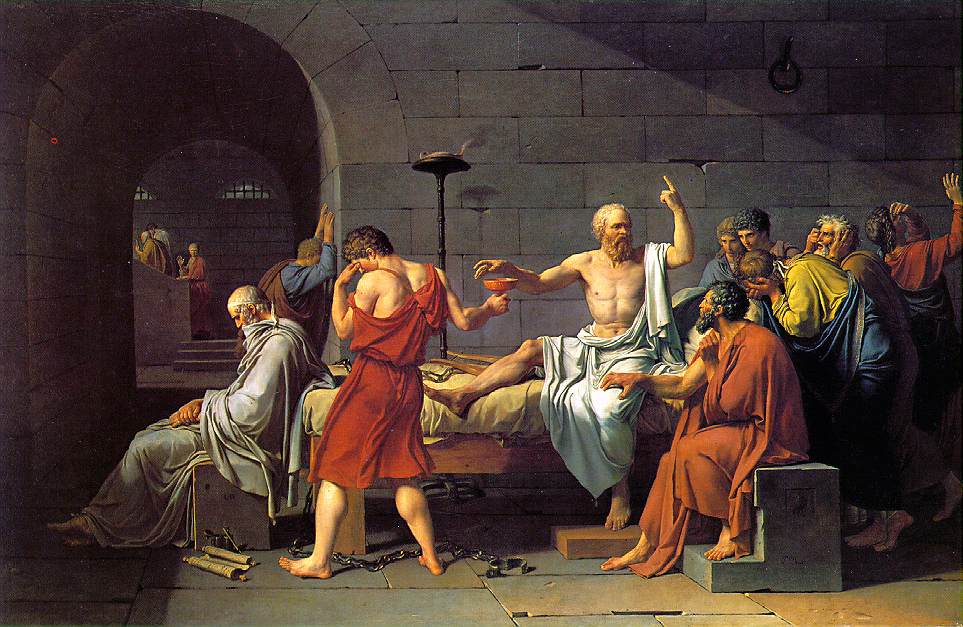
Slide 37: Jean-Auguste-Dominique Ingres, ‘The Vow of Louis XIII’ 1824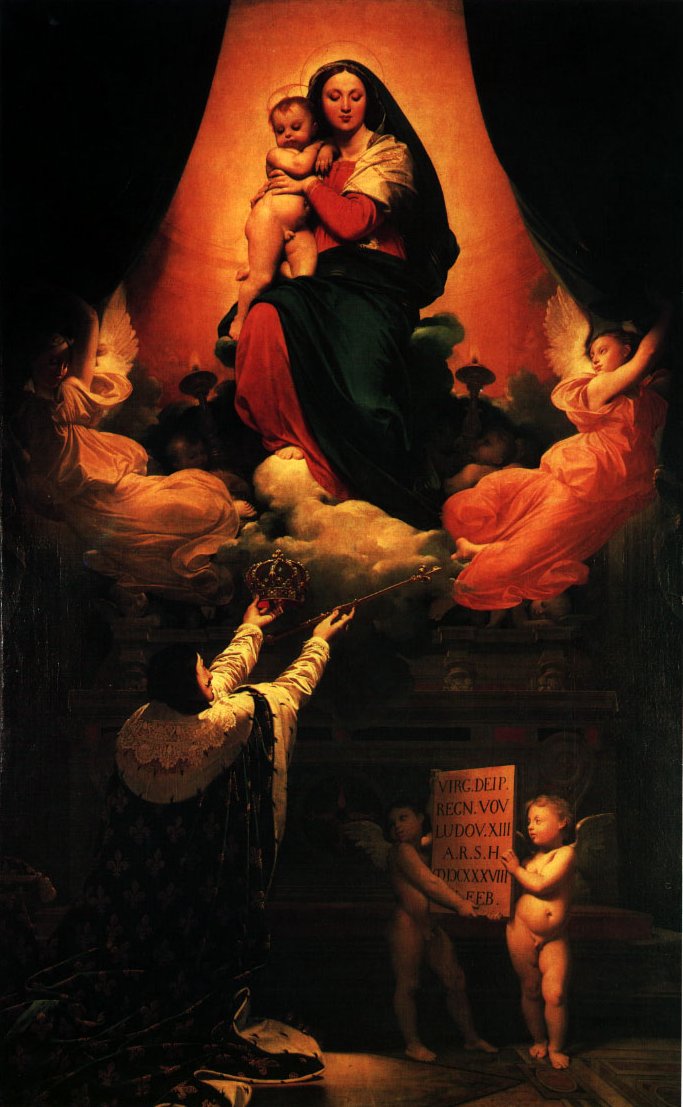
Slide 38: Raphael, ‘The small Cowper Madonna’ 1505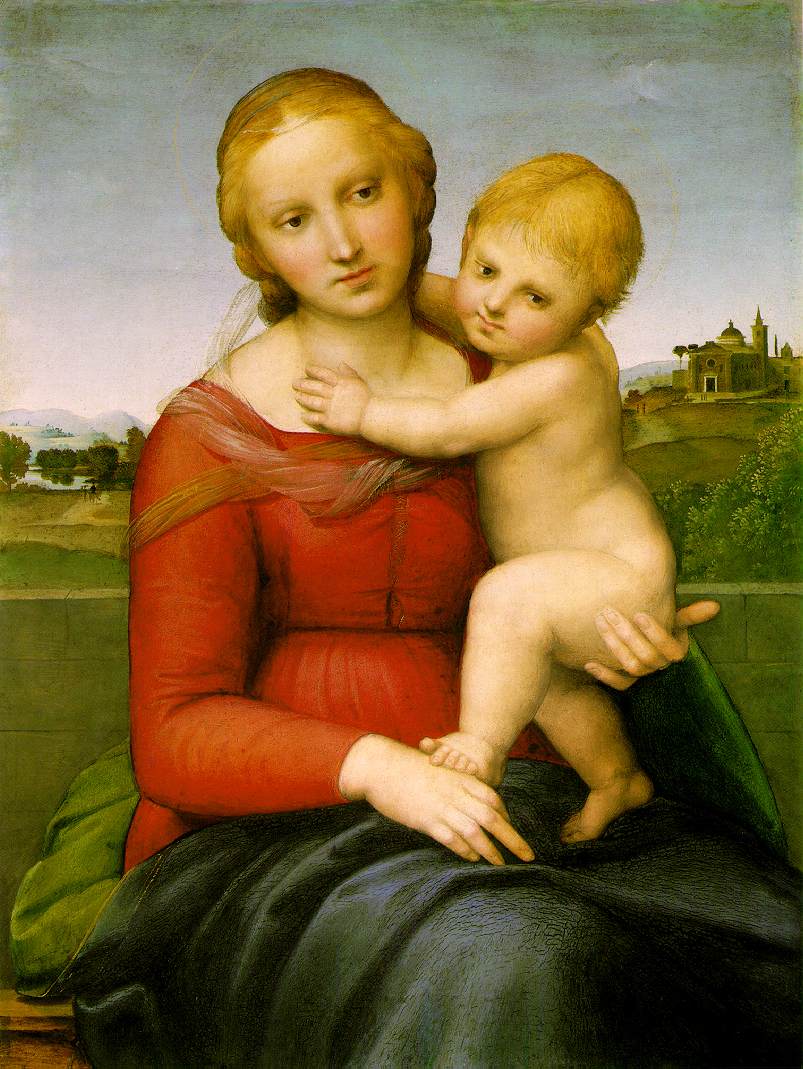
Slide 39: Jean Francois Millet, ‘The Gleaners’ 1857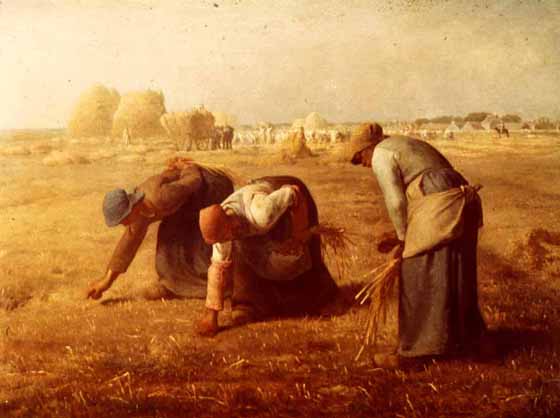
Slide 40: Johan Zoffany, ‘The Royal Academicians’ 1771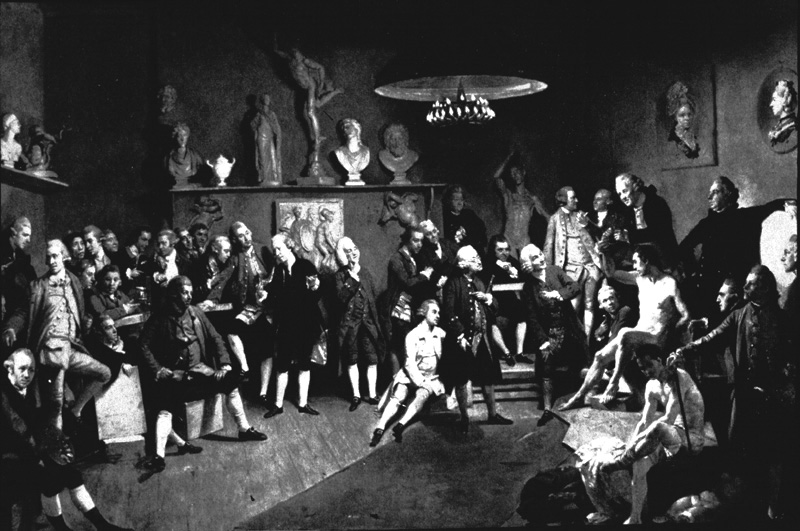
Slide 41: Joseph Wright of Derby, ‘An Academy by Lamplight’ 1769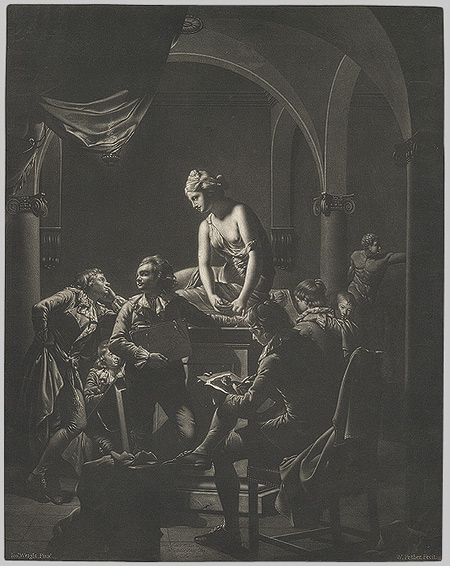
An Academy by Lamplight, 1772
William Pether (British, ca. 1738 – 1821) after Joseph Wright (British, 1734 – 1797)
Mezzotint; Plate: 22 7/8 x 17 7/8 in. (58 x 45.5 cm)
Harris Brisbane Dick Fund, 1953 (53.600. 566)
Slide 42: William Hogarth, ‘The Analysis of Beauty: Plate I’ 1753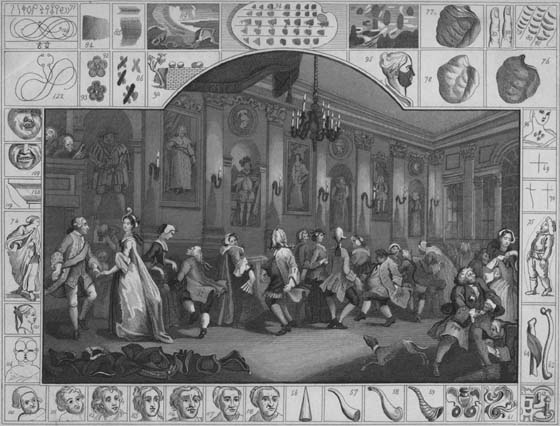
Slide 43: Jean-Auguste-Dominique Ingres, ‘The Apotheosis of Homer’ 1827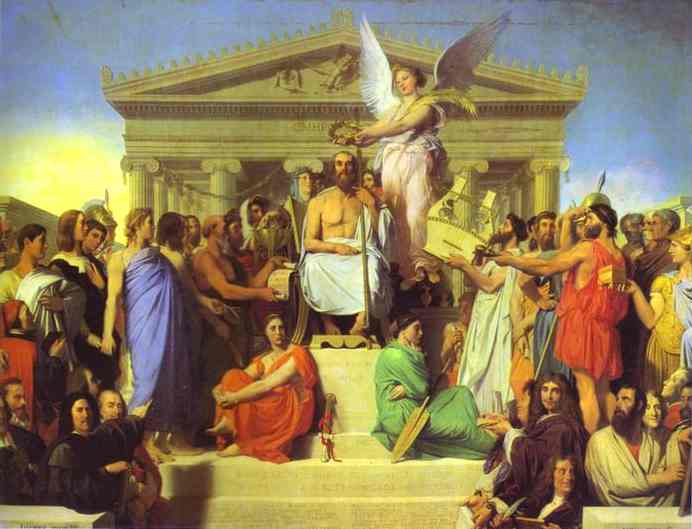
Slide 44: Jean-Auguste-Dominique Ingres, ‘Madame Moitessier’ 1856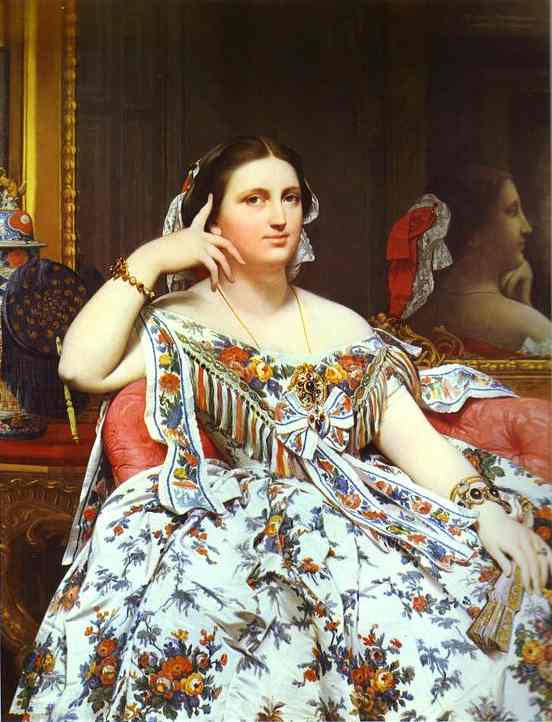
Slide 45: Wall painting from Herculaneum, ‘Hercules and Telephus’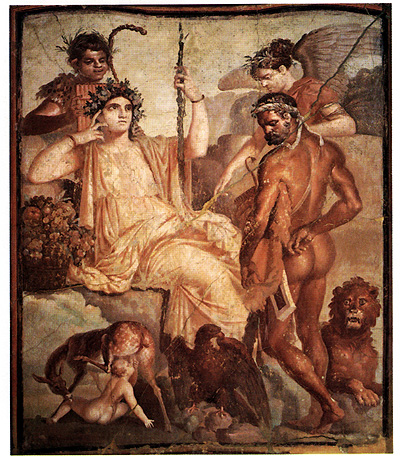
This painting is thought to reproduce a Hellenistic original. The scene represents the founding myth of the Attalid rulers of Pergamum. Hercules recognizes his natural son Telephus (suckled by a doe in lower left), in the presence of Arcadia (seated.)
Slide 46: Angelica Kauffman ‘Zeuxis Selecting Models for his Painting of Helen of Troy’ c.1778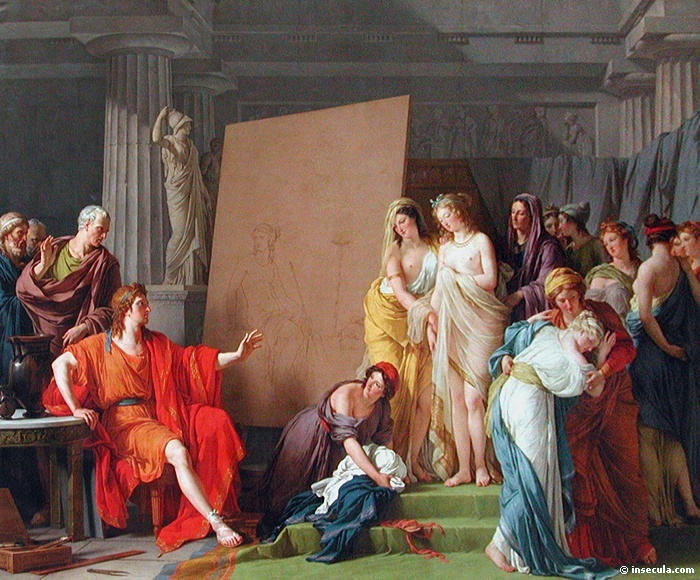
Slide 47: Raphael, ‘The Blinding of Elymas’ 1515-6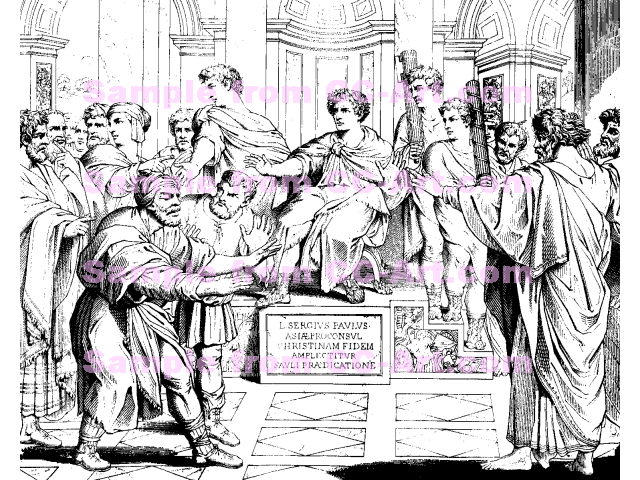
Slide 48: Edouard Manet ‘Olympia’ 1863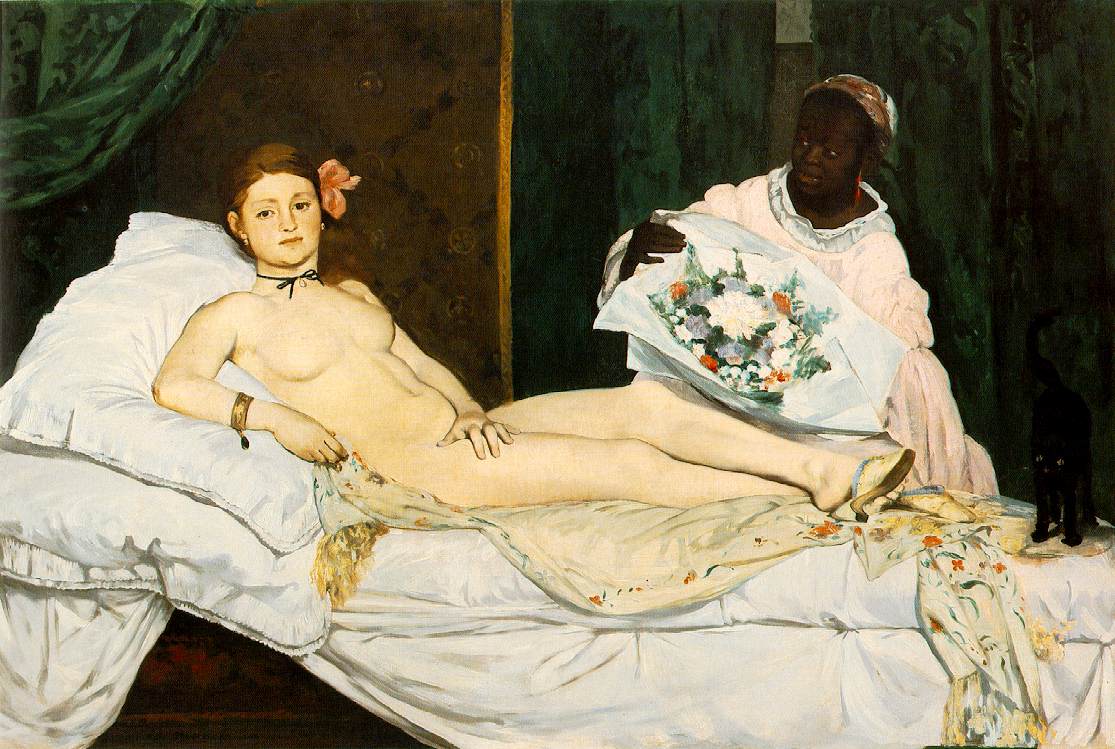
Slide 49: Titian, ‘Venus of Urbino’ 1538